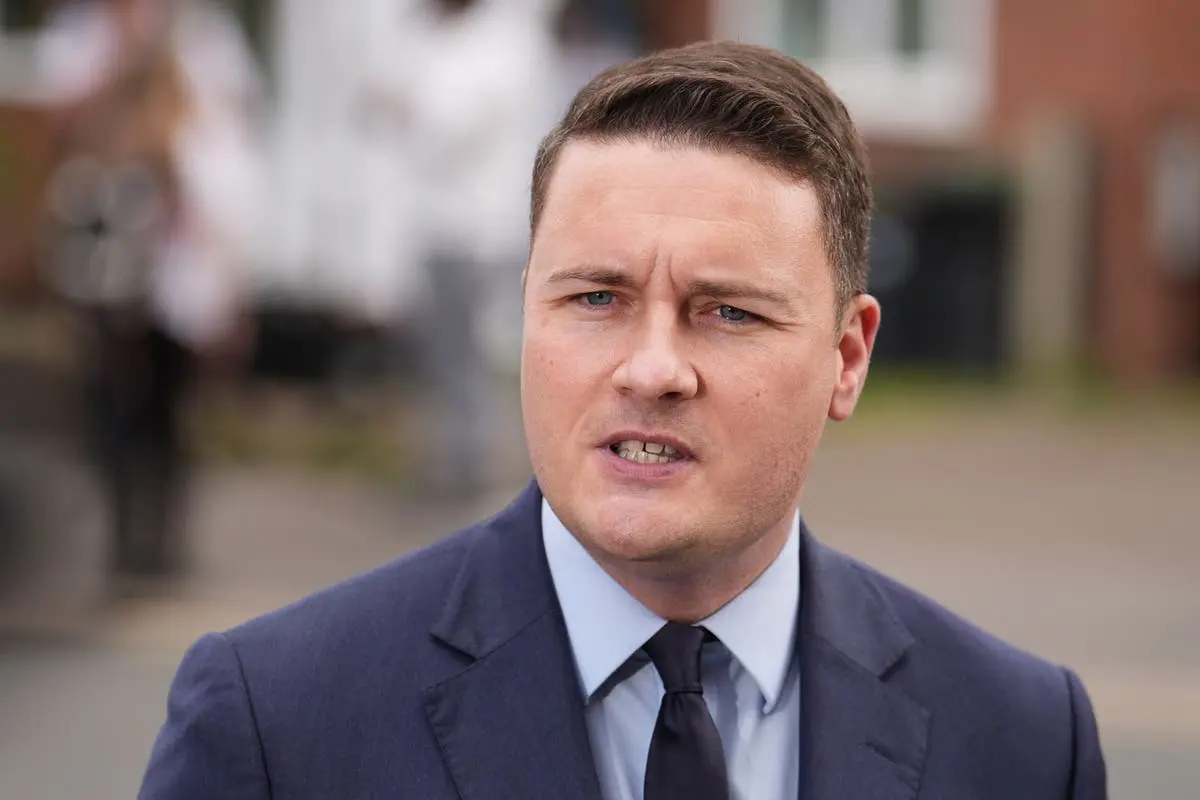The availability of weight loss drugs on the NHS doesn’t mean people can give up healthy lifestyles, Health Secretary Wes Streeting has warned.
Experts believe drugs like Ozempic will play an important role in tackling the UK’s obesity crisis.
But Mr Sweeting told the Daily Telegraph it was in “everyone’s interest to play their part” and avoid overloading the health system.
“We don’t want to encourage a dependency culture where people think it’s OK not to bother eating healthily or exercising, because the NHS will pick up the tab and pay for their weight loss jab,” he said.
“People in this country have the right to expect top quality healthcare, but also a responsibility to look after their own health, so we’ve got to get the balance right.”



There’s a false premise here that people only eat when/because they are hungry, as in, they are in need of calories, and stop when they aren’t.
They don’t. People eat for loads of reasons, and many of us have really unhealthy relationships with food, e.g. we eat it we’re sad, or bored, or to punish ourselves, etc.
Then there’s calorie density, you may not even realise how much you’re consuming. For example, a pint of beer has a similar amount of calories to a mars bar. You could quite comfortably drink 4 pints over an afternoon, consume 1000 calories, and then go out for a meal, in a way that you probably wouldn’t eat 4 mars bars, and then have a meal.
It’s just not the entire story. Ozempic/wegovy changes the way you feel about food.
I used to always want to eat a lot. And if there was candy on the table within my sight, like 80% of my mental focus would be on that candy, no matter how hard I tried to focus on something else.
Now it’s more like, meh I guess I could take a piece of candy, and then I get lost in talking and forget to actually put it in my mouth until half an hour later.
It is definitely not just appetite suppression. I used to overeat a lot, even after feeling quite a lot of pain from beeing stuffed, I would keep eating. Now I forget to eat, if I don’t have people around me going to lunch.
The soothing, rewarding pleasure of swallowing sugar, fat or salty food I used to need to feel good is just gone most of the time.
To some degree it feels like I have been set free.
I’m glad it’s working for you, I truly am.
But my point is that there are a variety of reasons, it will help some people with some of them, and won’t help others. As you’ll see in all the issued guidance, it’s prescribed alongside diet and lifestyle changes. As in, move more and eat healthier foods, in lower quantities.
If that helps, awesome, I’m not going to bash people who need medication to function - as I literally am one of those people - but it’s not a silver bullet.
It seems like the original criticism doesn’t apply though, this actually is that good for many people and actually causes them to do the thing the politician was asking them to.
The comment I originally replied to was asking about removal of appetite. The point I was making was that appetite isn’t the only reason people consume calories.
The jabs do not cause you to exercise, and losing weight without some level of exercise to build fitness is also not healthy.
The point Streeting is making is that you can’t just eat to excess and expect, 20 years later, that the NHS can fix all your problems with an injection.
It’s the same way that alcoholics are not given liver or kidney transplants, or smokers new lungs, because even if you did the transplants all the other problems (cancers, etc) would still exist.
Primary healthcare is really complicated because you’re dealing with people who are generally speaking not at the worse bit, yet, and so patient’s motivation to consider, let alone make, changes can be non-existent.
This in turn is what makes a preventative healthcare model so much harder to achieve. The best way to treat T2 diabetes is to not get there in the first place, but friends of mine routinely have conversations with patients where their likelihood of having T2D, or stroke, heart attack, etc, is very high within the next 5 years, and are met with blunt refusals to even consider something as trivial as a lower calorie butter/spread, and instead just demand a jab.
This is not everyone, but it is a significant proportion, and it’s right the Health Secretary to remind people that while the NHS does exist, and will support you if you get there, that it’s better for yourself to not end up there in the first place.